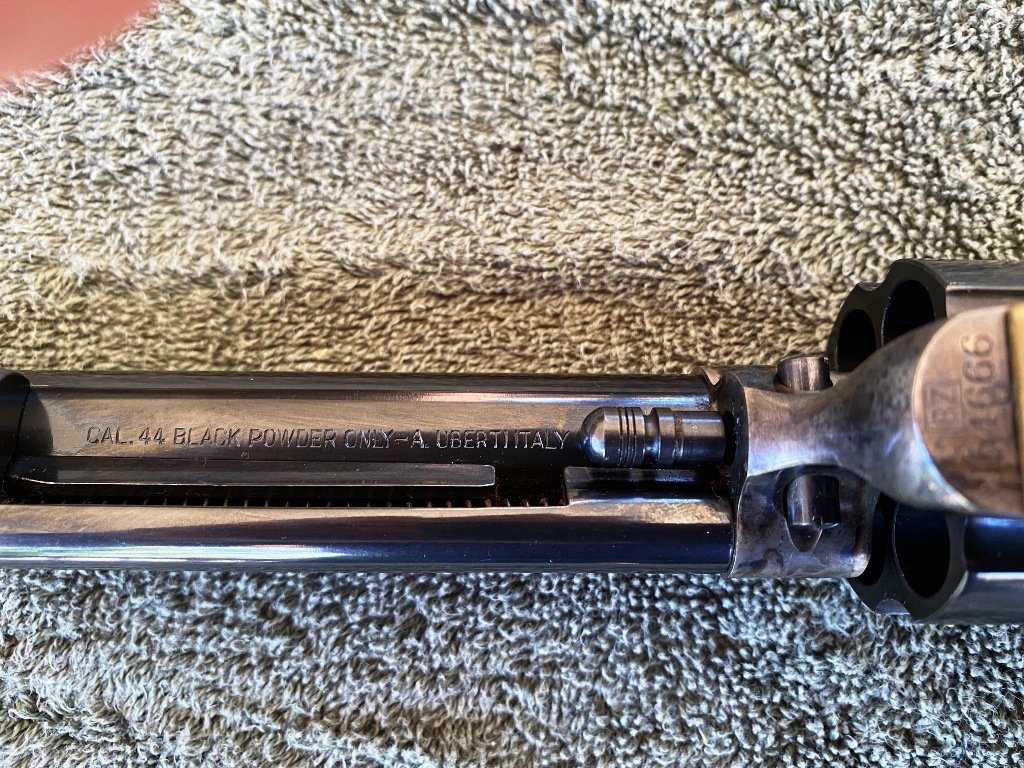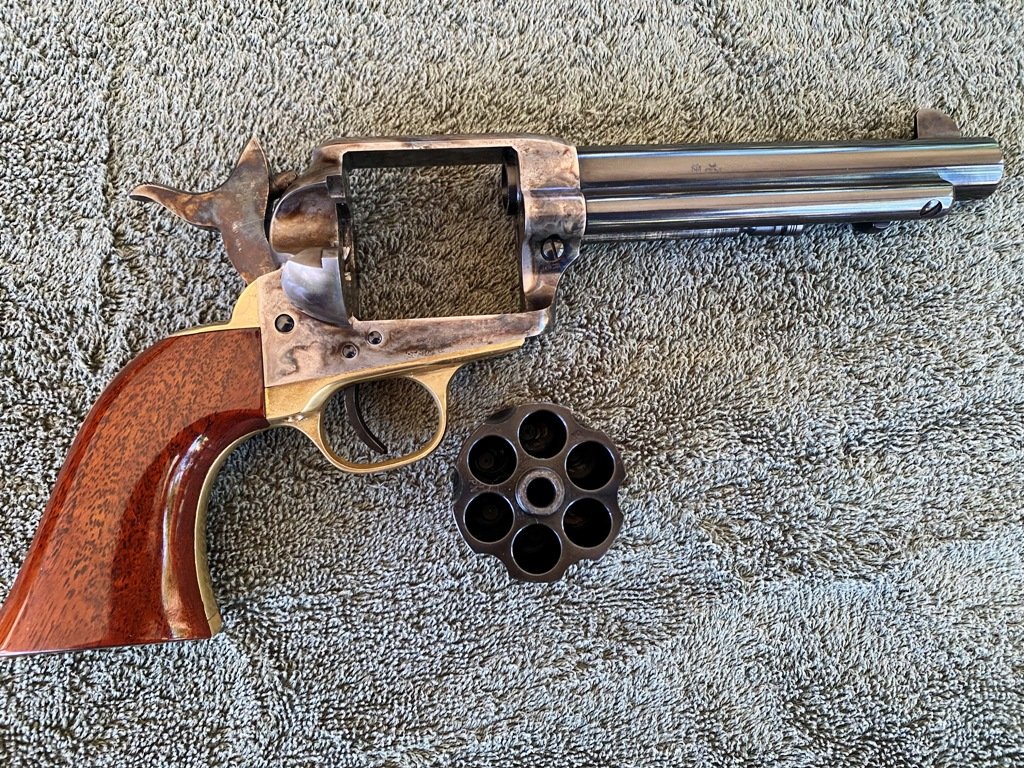1873 Cattleman Black Powder Conversion Cylinder: A Comprehensive Guide
The 1873 Cattleman Black Powder Conversion Cylinder is a fascinating piece of firearms history that continues to captivate enthusiasts worldwide. This iconic firearm holds a special place in the hearts of collectors, historians, and shooting sports aficionados alike. As we delve into the rich history, technical specifications, and modern adaptations of this legendary weapon, you'll gain a deeper appreciation for its significance in the world of firearms.
For those unfamiliar, the 1873 Cattleman Black Powder Conversion Cylinder refers to a modified version of the classic Single Action Army revolver, designed to use modern ammunition while retaining its historical charm. This adaptation allows contemporary users to experience the thrill of shooting a historically inspired firearm with the reliability and safety of modern technology.
This article explores everything you need to know about the 1873 Cattleman Black Powder Conversion Cylinder, from its origins and development to its current applications. Whether you're a seasoned collector or a newcomer to the world of firearms, this guide will provide you with valuable insights and practical knowledge to enhance your understanding of this remarkable piece of weaponry.
Read also:Christine Lahti Net Worth A Comprehensive Look At Her Career Wealth And Achievements
Table of Contents
- History of the 1873 Cattleman
- The Conversion Process
- Key Components of the Cylinder
- Advantages of Black Powder Conversion
- Maintenance Tips
- Shooting Tips for Beginners
- Value for Collectors
- Safety Measures
- Modern Use Cases
- Conclusion
History of the 1873 Cattleman
The 1873 Cattleman revolver, often referred to as the "Peacemaker," has a storied history that dates back to the late 19th century. Originally developed by Colt's Manufacturing Company, this firearm became an iconic symbol of the American frontier. Its reliability and accuracy made it a favorite among cowboys, lawmen, and outlaws alike during the Wild West era.
Origins and Development
The original 1873 Single Action Army revolver was designed to use black powder cartridges. Over time, advancements in ammunition technology led to the development of smokeless powder, which offered superior performance and reduced fouling. The 1873 Cattleman Black Powder Conversion Cylinder emerged as a solution for enthusiasts who wanted to preserve the historical aesthetics of the revolver while benefiting from modern ammunition capabilities.
The Conversion Process
Converting a traditional 1873 Cattleman revolver to accommodate modern ammunition involves several key steps. This process ensures that the firearm remains safe and functional while maintaining its historical appeal.
Steps in the Conversion Process
- Disassembly of the original cylinder
- Installation of a new cylinder designed for modern ammunition
- Adjustments to the firing mechanism for optimal performance
- Testing and fine-tuning to ensure reliability
Key Components of the Cylinder
The 1873 Cattleman Black Powder Conversion Cylinder consists of several essential components that work together to ensure its functionality. Understanding these components is crucial for anyone interested in maintaining or modifying their firearm.
Main Components
- Cylinder: The heart of the conversion, designed to accommodate modern cartridges
- Barrel: Often modified to enhance accuracy and performance
- Firing Mechanism: Adapted to work seamlessly with the new cylinder
Advantages of Black Powder Conversion
Switching to a black powder conversion cylinder offers numerous advantages for firearm enthusiasts. These benefits include improved performance, reduced maintenance, and enhanced safety.
Performance Benefits
Modern ammunition provides greater velocity and accuracy compared to traditional black powder cartridges. This makes the converted revolver more effective for both recreational shooting and competitive events.
Read also:Linda Bazalaki Curtis The Inspiring Journey Of A Resilient Woman
Maintenance Tips
Proper maintenance is essential for ensuring the longevity and reliability of your 1873 Cattleman Black Powder Conversion Cylinder. Follow these tips to keep your firearm in top condition:
- Clean the barrel and cylinder after each use
- Inspect the firing mechanism regularly for wear and tear
- Lubricate moving parts as needed
Shooting Tips for Beginners
For those new to shooting the 1873 Cattleman, here are some tips to help you get started:
- Practice proper grip and stance for better control
- Start with lower-powered ammunition to get a feel for the firearm
- Focus on accuracy rather than speed when practicing
Value for Collectors
The 1873 Cattleman Black Powder Conversion Cylinder holds significant value for collectors. Its historical significance and adaptability make it a prized addition to any firearms collection.
Factors Influencing Collector Value
- Rarity of the specific model
- Condition and authenticity of the firearm
- Historical provenance or notable ownership history
Safety Measures
Safety should always be a top priority when handling firearms. Here are some important safety tips to keep in mind:
- Always treat the firearm as if it is loaded
- Keep the muzzle pointed in a safe direction
- Store firearms securely when not in use
Modern Use Cases
Today, the 1873 Cattleman Black Powder Conversion Cylinder finds applications in various shooting disciplines, including cowboy action shooting and historical reenactments. Its versatility and historical charm continue to attract a wide range of enthusiasts.
Conclusion
The 1873 Cattleman Black Powder Conversion Cylinder represents a perfect blend of history and modern technology. From its origins in the Wild West to its current applications, this firearm continues to inspire and captivate those who appreciate its legacy. By understanding its components, maintenance requirements, and safety protocols, you can fully enjoy the experience of owning and shooting this iconic piece of firearms history.
We encourage you to share your thoughts and experiences in the comments below. If you found this article helpful, consider sharing it with fellow firearm enthusiasts. For more in-depth guides and insights into the world of firearms, explore our other articles and resources.


